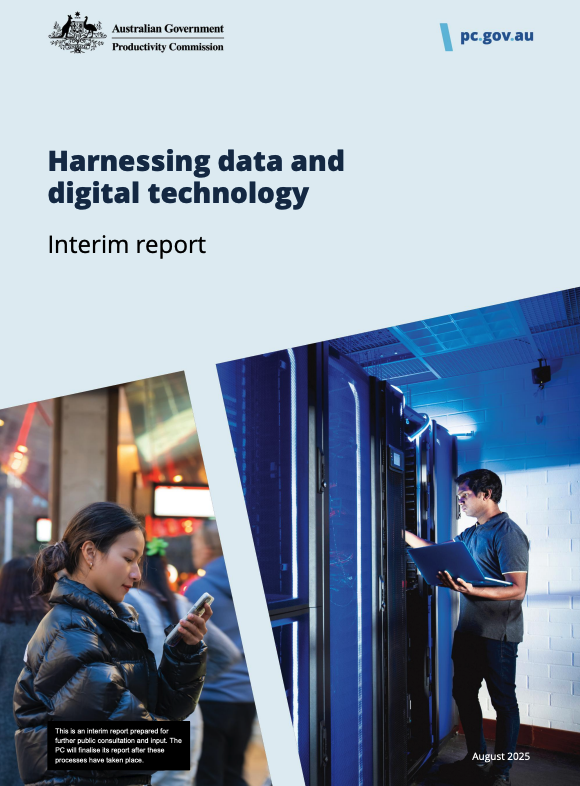The data miners take an L

Scott Farquhar made the data mining case badly on 7.30
It took three nervous months, but last night came news of a rare victory for the home team against the digital giants.
Despite what had appeared to be a sympathetic ear from the Productivity Commission, the tech lobby’s push to introduce a special exemption in Australian copyright law, to allow AI systems to scrape content without paying for it has been ruled out by the government.
Happily, we may never know how close the proposal was to getting up.
The Productivity Commission started the hare running in its report Harnessing Data and Digital Technology published at the beginning of August.

The lobbyists had argued to the PC that if Australia does not make its locally produced content available to scrape for free, the country could be seen by the AI companies as an unattractive place to do business (Oh no!).
The commission appeared to buy the argument, stating in its report: “The PC is considering whether there is a case for a new fair dealing exception that explicitly covers text and data mining. TDM exceptions exist in several comparable overseas jurisdictions.”
It added: “Such an exception would cover not just AI model training, but all forms of analytical techniques that use machine-read material to identify patterns, trends and other useful information. For example, the use of text and data mining techniques is common in research sectors to produce large datasets that can be interrogated through statistical analysis.”
Perhaps, the PC thought bubble went, AI companies might flock to Australia, if only the pesky copyright laws were a little more lax.
“At present, large AI models are trained overseas, not in Australia. It is unclear whether the introduction of a TDM exception would change this trend. A TDM exception could make a difference to whether smaller, low compute models (such as task-specific models) can be built and trained in Australia,” argued the PC
Atlassian co-founder and Tech Council of Australia chair Scott Farquhar promoted the same argument. Appearing on the ABC’s 7.30, he was given an intellectual pummelling by host Sarah Ferguson.
And when the Productivity Commission was asked to defend its thinking in Parliament, it became obvious that it had done a poor job of consulting the copyright owners.
It fell instead to News Corp’s executive chair Michael Miller – one of the few media company bosses to regularly put himself in the public policy arena – to make the case against the change.
In his Big Steal speech to the Melbourne Press Club, Miller pointed out that if content makers do not get paid for the use of their work, the business model that leads to the creation of more content vanishes.
That was always the intellectual hole in big tech’s argument. It needs that content to train its large language models. But if big tech doesn’t pay for that content, the pipeline dries up.
Governments don’t always do the sensible thing, but ruling out the creation of a TDM loophole is good policy. It now makes it more viable for copyright owners to negotiate deals with AI platforms to pay for their content
It was an unnecessary three months of angst. It’s embarrassing for the Productivity Commission that it bought the proposal in the first place.

